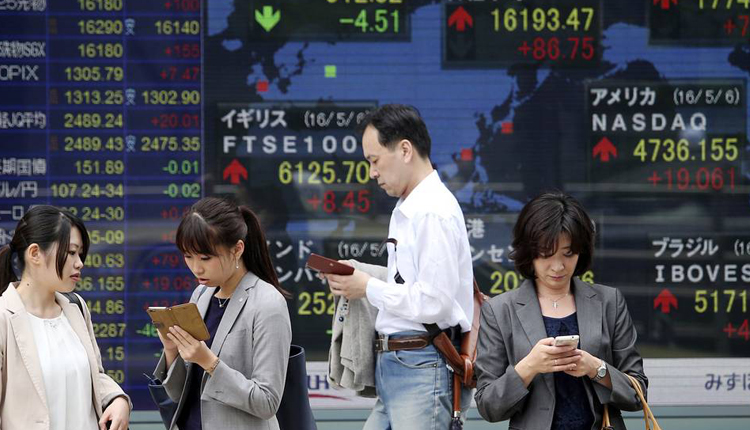Markets in Asia traded lower on Thursday, with investors cautious over fresh trade-related developments as the trade dispute between the U.S. and China remained in focus.
In Japan, the Nikkei 225 declined 1.25 percent, extending losses of more than 270 points in the last session on the firmer yen. Autos traded lower, as did other major exporters as the yen rose around 0.6 percent to trade at 109.41 to the dollar. The broader Topix fell 1.18 percent.
Down Under, the S&P/ASX 200 shed 0.2 percent, with the heavily weighted financials subindex weighing. South Korea’s benchmark Kospi, meanwhile, gave up early gains to track lower by 0.35 percent.
Greater China markets were narrowly mixed. The Hang Seng Index edged higher by 0.07 percent and on the mainland, the Shanghai composite hovered around the flat line.
MSCI’s index of shares in Asia Pacific excluding Asia tacked on 0.15 percent in Asia afternoon trade.
The U.S. Department of Commerce started an investigation into automobile imports on a “national security” basis, the agency announced Wednesday during U.S. hours. The surprise announcement comes at a time of worsening friction over international trade between the United States and its allies.
Stocks of South Korean automakers were broadly lower on Thursday, with Hyundai Motor down 2.77 percent and Kia Motors sliding 4.01 percent. Japanese automakers, which had been under pressure from the firmer yen, also saw declines: Toyota Motor lost 2.8 percent and Honda Motor fell 2.79 percent.
The latest trade-related development came after U.S. President Donald Trump said Wednesday that the current framework used in trade talks with China was “too hard to get done.” Trump had said he was “not satisfied” with recent negotiations with China earlier in the week.
“It’s not clear what the end game is here because this is not a game anymore of just targeting a particular country. This obviously has spillovers into your own country, but also into other allies as well, so again, I wouldn’t get hung up over the economics of all of this,” Dwyfor Evans, head of Asia Pacific macro strategy at State Street Global Markets, told CNBC’s “Squawk Box.”
“I would think of this purely as probably a six-month run-up to the mid-term [elections in the U.S.],” he added.
On Wednesday, U.S. stocks finished the last session with slight gains after the Federal Reserve said in its minutes that it was comfortable with inflation temporarily running above their target of 2 percent.
The minutes from the Fed’s latest meeting in May showed officials at the central bank generally thought inflation would continue to rise, but differences arose over how confident the Fed should be after years of undershooting. Still, there appeared to be agreement that allowing the economy to rev up a little would be appropriate.
The dollar index, which tracks the greenback against a basket of currencies, was steady at 93.906 at 12:05 p.m. HK/SIN after trading as high as 94.188 overnight following the release of the Fed’s minutes.
Meanwhile, the Turkish lira was steady for the most part after getting some relief after the country’s central bank raised interest rates by 300 bps overnight. The currency had fallen around 20 percent this year, according to Reuters.
Of note, the Bank of Korea on Thursday announced it would be keeping rates on hold at 1.5 percent, a move that was expected by markets.
Source: CNBC


